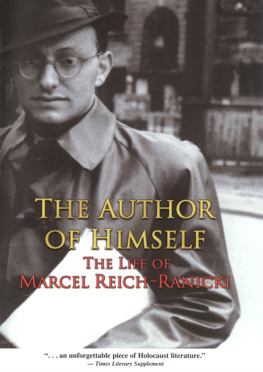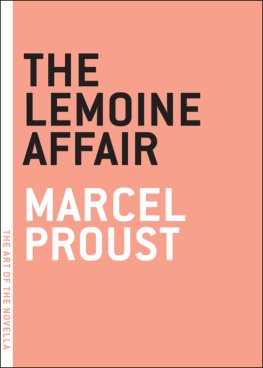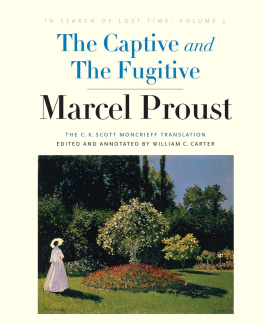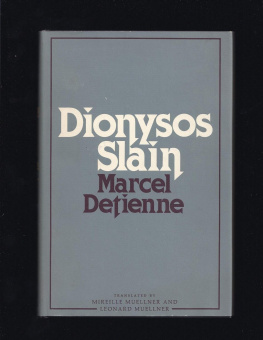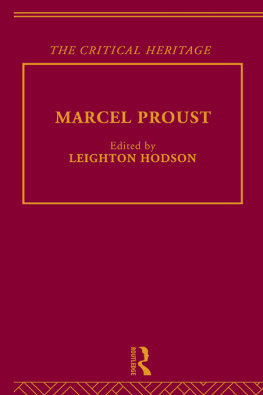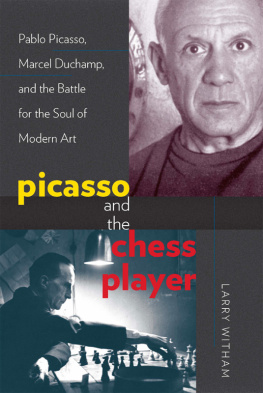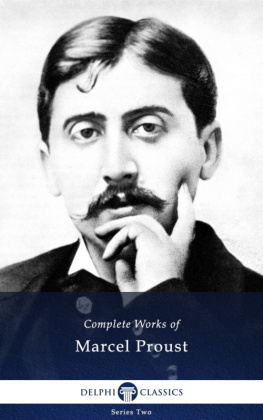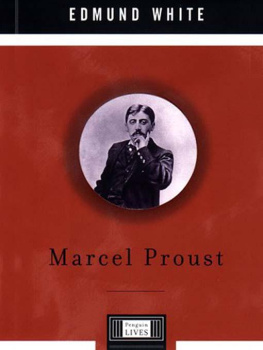Marcel Reich-Ranicki - The Author of Himself: The Life of Marcel Reich-Ranicki
Here you can read online Marcel Reich-Ranicki - The Author of Himself: The Life of Marcel Reich-Ranicki full text of the book (entire story) in english for free. Download pdf and epub, get meaning, cover and reviews about this ebook. year: 2020, publisher: Princeton University Press, genre: Non-fiction. Description of the work, (preface) as well as reviews are available. Best literature library LitArk.com created for fans of good reading and offers a wide selection of genres:
Romance novel
Science fiction
Adventure
Detective
Science
History
Home and family
Prose
Art
Politics
Computer
Non-fiction
Religion
Business
Children
Humor
Choose a favorite category and find really read worthwhile books. Enjoy immersion in the world of imagination, feel the emotions of the characters or learn something new for yourself, make an fascinating discovery.
- Book:The Author of Himself: The Life of Marcel Reich-Ranicki
- Author:
- Publisher:Princeton University Press
- Genre:
- Year:2020
- Rating:4 / 5
- Favourites:Add to favourites
- Your mark:
- 80
- 1
- 2
- 3
- 4
- 5
The Author of Himself: The Life of Marcel Reich-Ranicki: summary, description and annotation
We offer to read an annotation, description, summary or preface (depends on what the author of the book "The Author of Himself: The Life of Marcel Reich-Ranicki" wrote himself). If you haven't found the necessary information about the book — write in the comments, we will try to find it.
The Author of Himself: The Life of Marcel Reich-Ranicki — read online for free the complete book (whole text) full work
Below is the text of the book, divided by pages. System saving the place of the last page read, allows you to conveniently read the book "The Author of Himself: The Life of Marcel Reich-Ranicki" online for free, without having to search again every time where you left off. Put a bookmark, and you can go to the page where you finished reading at any time.
Font size:
Interval:
Bookmark:

THE LIFE OF MARCEL REICH-RANICKI
THE LIFE OF MARCEL REICH-RANICKI
Marcel Reich-Ranicki
Translated from the German by Ewald Osers
With a foreword by Jack Zipes
Princeton University Press
Princeton, New Jersey
For Teofila Reich-Ranicki and
Andrew Alexander Ranicki
Published in the United States and Canada by Princeton University Press, 41 William Street, Princeton, New Jersey 08540
First published in English by Weidenfeld and Nicolson and in German under the title Mein Leben Copyright 1999, Deutsche Verlags-Anstalt GmbH, Stuttgart
The moral right of Marcel Reich-Ranicki to be identified as the author of this work has been asserted in accordance with the Copyright, Designs and Patents Act 1988.
Translation Copyright 2001 Ewald Osers
The moral right of Ewald Osers to be identified as the translator has been asserted in accordance with the Copyright, Designs and Patents Act 1988.
All rights reserved.
Library of Congress Control Number 2001088229
ISBN 978-0-691-20606-6
This book has been composed in 10.75 Times New Roman
Typeset at Selwood Systems, Midsomer Norton
www.pup.princeton.edu
1 3 5 7 9 10 8 6 4 2
It appears that miraculous forces have worked wonders in Marcel Reich-Ranickis life. After all, how is it possible that a young Jewish boy from a small town in Poland, who was raised in Berlin, then forced by the Nazis to live in Warsaw in 1938 and experience the uprising of the Warsaw Ghetto, could have survived not only the terrors of the Holocaust but also the malicious police state of Poland to become the most successful and controversial literary critic in postwar Germany?
In fact, Reich-Ranicki is today a cultural institution in Germany, and his word can make or break a writers career. For years he has served on prestigious national and regional committees that award literary prizes. He has published reviews in all the leading newspapers and magazines in Germany, including Die Zeit, Frankfurter Allgemeine Zeitung, and Der Spiegel, as well as numerous books on literature. He has hosted popular radio and television shows and captivated participants and audiences with his bold pronouncements, his hyperbolic and very peculiar manner of speech, and with his comprehensive knowledge of German literature, art, and music from the eighteenth century to the present. Wise and astute, he also plays the clown and is as much an entertainer as he is a serious critic. Indeed, he can be formidable and ferocious in defending his views, witty and sovereign in repartee, and has come to represent the epitome of the cultured German. Yet, Reich-Ranicki refuses to call himself a German.
This is one of the great ironies of postwar German history. A Jew became and still is the literary pope of the German nation and yet refuses to assume a German identity. How this could happen is the focus of Reich-Ranickis autobiography, which has become a veritable best-seller in Germany. Just as Reich-Ranicki writes in wonderment about the course of his life, German readers are intrigued by his marvelous story that reads like a Bildungsroman, a typical German novel of development. But, of course, his development has not followed a straight and easy path.
In 1929, when Reich-Ranicki was nine years old and about to move from the Polish city of Wloclawek, one of his favorite teachers told him that he was going to travel into the land of culture, and his mother nodded her approval. And yes, Reich-Ranicki did soak up German culture in Berlin and did develop a great love affair with German literature. But as an alien Jew, the Nazis compelled him and his family to return to Poland. In 1938 Warsaw became his home, and he held various jobs until he was forced to live in the ghetto, where he was employed as a translator and interpreter by the Jewish Council. At the beginning of 1943 he became a member of the Jewish resistance and managed to escape the ghetto with his wife after their parents and relatives had been sent to concentration camps where they were murdered. Reich-Ranickis account of the sordid and humiliating conditions of life in the ghetto is an important document of the barbarism of the Nazis and the valor of the Jews, especially because he worked in the offices of the council and was privy to major encounters with high-ranking officials on both the German and Jewish sides. Moreover, he experienced the daily deprivation as most of the Jews did and worked clandestinely with members of the resistance. Once he and his wife managed to get outside the ghetto, they were hidden by simple Polish peasants in a crude cellar for close to two years, an incident that Gnter Grass fictionalized in his novel, From the Diary of a Snail (1972). After they were liberated by the Russians, Reich-Ranicki and his wife made their way to Warsaw where he joined the Communist Party and began working for the Foreign Ministry. But since he did not adhere to the strict policies of the CP, he was eventually imprisoned and dismissed from the party. This dismissal led to his work as a journalist and his return to German culture, and it enabled him to turn his love for German culture into a profession. From 1950 to 1958, Reich-Ranicki became the foremost Polish literary critic of German literature from the East and the West, and he befriended some of the most important writers and critics of the times, such as Anna Seghers, Bertolt Brecht, Hans Mayer, Siegfried Lenz, Heinrich Boll, and many of the members of the famous Group 47. When anti-Semitism reared its ugly head in Poland during the 1950s, Reich-Ranicki fled in 1958 to West Germany another one of the striking twists in his development. Thanks to his connections with numerous German writers and key people in the mass media, he was able to establish himself quickly on the cultural scene. In fact, it is astonishing to see how fast he became famous if not notorious. Through his reviews, books, and radio and television shows, he focused all his efforts on re-establishing the great humanistic tradition of German literature and became the spokesman for the renewal of this tradition on the contemporary scene. However, he also had a knack for making enemies, even out of those writers who had befriended him, such as Boll, Grass, and Martin Walser. Reich-Ranicki was always and still is a troublemaker and compulsive writer who felt himself to be on a mission in postwar Germany. At one point in his autobiography he asks himself: Why then the great trouble, the constant strain? Because of the literature? Yes, certainly. Was it my ambition to continue, perhaps in a very demonstrative manner, the tradition of Jews in the history of German literary criticism to which I had long since adhered in a leading position and in great public view? Certainly. Did my passion have anything to do with my yearning for a home country, that home country which I was lacking and which I had believed to have found in the German literature? Yes, and possibly in a much greater degree than I was even aware.
It is both the self-awareness in his autobiography and also his stout refusal to compromise his position as a non-German writer who feels that he has a claim on German culture that makes Reich-Ranicki such a fascinating figure. In this respect, he differs from writers like the literary scholar Victor Klemperer, whose diaries and autobiographical writings were published in Germany and the United States in the 1990s and became best-sellers. Klemperer felt himself more German than Jewish and could never really surmount or deal with this dilemma, despite his terrible experiences during the Holocaust. Reich-Ranicki has become more German than most Germans but holds onto something indelibly Jewish, probably because of the Holocaust, and refuses to be called a German. His survival as irascible critic and literary pope of Germany is truly one of the most noteworthy stories of postwar history, and it is a story well worth reading.
Font size:
Interval:
Bookmark:
Similar books «The Author of Himself: The Life of Marcel Reich-Ranicki»
Look at similar books to The Author of Himself: The Life of Marcel Reich-Ranicki. We have selected literature similar in name and meaning in the hope of providing readers with more options to find new, interesting, not yet read works.
Discussion, reviews of the book The Author of Himself: The Life of Marcel Reich-Ranicki and just readers' own opinions. Leave your comments, write what you think about the work, its meaning or the main characters. Specify what exactly you liked and what you didn't like, and why you think so.

